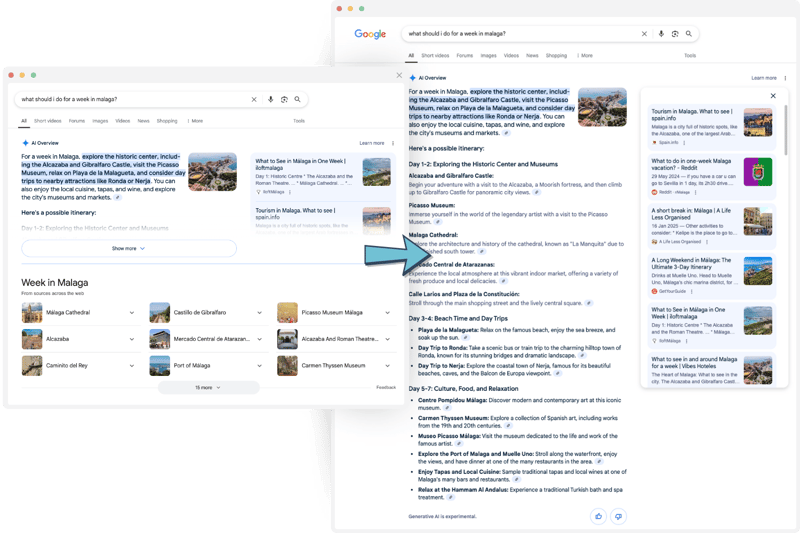
Google has long made it clear that it doesn’t want to just help users search – it wants to help them find answers.
NB: This is an article from GuestRevu
Subscribe to our weekly newsletter and stay up to date
Its latest round of updates in Search and Maps, powered by generative AI, further help to fulfil Google’s aim of giving users what they want with as little friction as possible. This evolution has major implications for how travellers plan trips and, in turn, how hotels are discovered, compared, and chosen.
What Google is Rolling Out
While the tools are still in phased rollouts and may not yet be visible to all users, Google’s direction is clear. Here are three major developments that hoteliers need to be aware of:
1. AI-Powered Itinerary Planning
Searches like “What should I do for a week in Malaga?” can now yield detailed, day-by-day itineraries pulled from multiple sources across the web. “You’ve probably seen Google’s AI answering service already,” explains Pete Stevens of Clockwork Marketing, “but now it’s starting to pull together itineraries, if you ask it in the right way… It’ll give you a day-by-day breakdown of the top things to do.”
These AI-generated responses synthesise content from a wide array of sites – media, tourism boards, OTAs, blogs – to create a coherent, structured answer.
This is a significant shift from Google’s traditional format, where a user had to click through to several individual results to build a plan. Instead, the AI now curates a unified view making it harder for any one hotel to stand out organically.
“Historically, Google gave you one answer at a time. Now, it’s scraping from all over and putting the pieces together,” Pete explained. If your hotel’s story isn’t well represented in the sources the AI draws from, you risk being left out.

2. Conversational Refinement via Generative AI
Travel planning no longer means a series of static Google searches. Using Gemini, travellers can now refine their itineraries in a conversational way. Travellers can adjust their preferences and priorities mid-search – a fundamental shift from the traditional model of one-query, one-result.
This opens the door for more personalised recommendations, but also means that Gemini needs to be able to find content that is rich, diverse, and relevant to a wide variety of user intents.
To be discovered, hotels need to create content that answers layered and situational questions, not just static search queries. For example, a list of ‘family-friendly things to do within 5 miles of the hotel’ could become far more relevant than a general attractions page.




